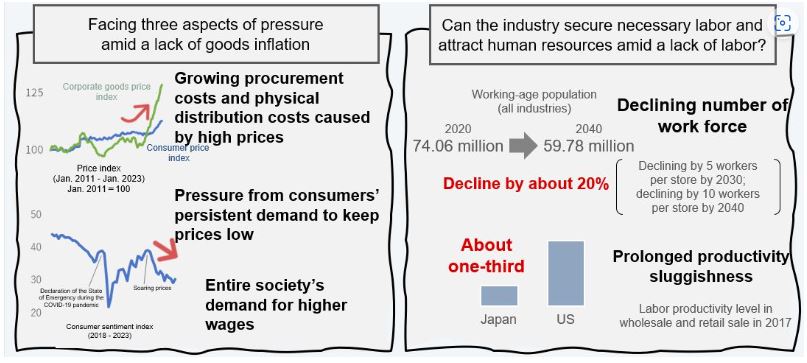Japan’s distribution industry, which accounts for 14% of the country’s GDP and employs 16% of its working population, is facing pressure from rising costs, low consumer prices, and demands for higher wages. These pressures are putting strain on the industry’s profit structure, while a labor shortage further exacerbates the situation.
To address these issues, the Ministry of Economy, Trade and Industry (METI) launched a “Study Group on Ideal Approaches to the Distribution Industry Facing High Prices” in July 2022. The group, consisting of experts in macroeconomics, distribution, logistics, and various stakeholders from the industry, held seven meetings to discuss ways the industry can sustainably function as an essential infrastructure for people’s day-to-day lives.

Image: METI
In addition to the study group, METI also held a Super-DX Contest to encourage the distribution industry to introduce digital transformation (DX) by partnering with startups that hold excellent digital technologies. The contest aimed to cultivate promising IT companies in the industry and promote business matching.
As a result of these efforts, METI has released a report that summarizes the results of the study group’s discussions and presents solutions to problems for the industry. The report contains 22 case examples recognized in the Super-DX Contest and provides directions that the industry should aim for. These include redefining resources, sharing resources, and utilizing resources for value creation.
The report also highlights the importance of incorporating a perspective of resources when managing the industry, using return on invested capital (ROIC) as a management index for reference. METI suggests that the government should support the industry in establishing standards and platforms to allow broader cooperation among businesses in the private sector.
Overall, METI aims to encourage the distribution industry to reform its existing business practices, improve productivity, and sustainably fulfill its function of distributing consumer goods, including day-to-day necessities essential to people’s lives and local economies.


No comments yet.